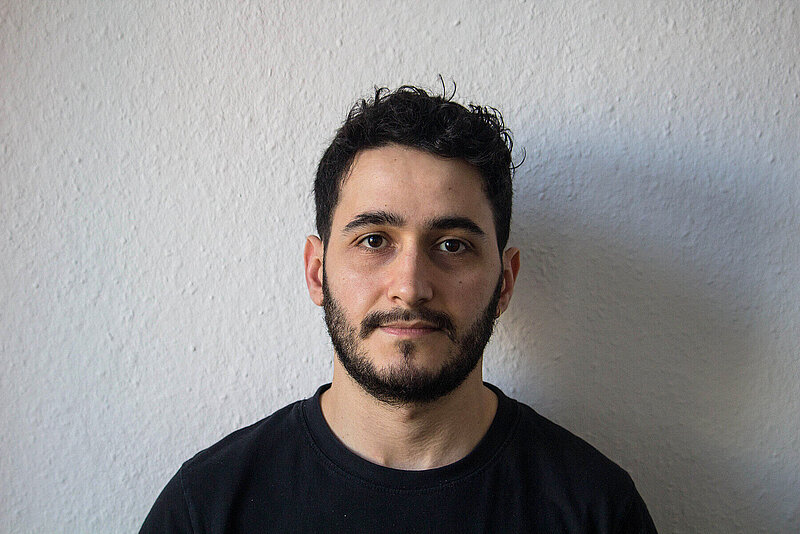
A second-year MPP student on his NGO, the Nobel Prize Summit, and his path from Syria to the Hertie School.
Last week, the first-ever “Nobel Prize Summit: Our Planet, Our Future“ was held virtually from 26-28 April 2021. The event, organised by the Nobel Foundation, brought together Nobel Prize laureates and other leaders to discuss how to create a more sustainable future. Among the speakers and panelists was Ahmad Mobayed, current Hertie School MPP student and co-founder of the Syrian Youth Assembly.
Ahmad’s role entailed helping lead a conversation with Stanley Whittingham, who won the 2019 Nobel Prize in Chemistry for his work on lithium-ion batteries, a key enabler of a greener economy. The panel also included David Gross, Nobel Prize laureate in physics, and Beatie Wolfe, artist and UN Women campaign role model. Ahmad’s questions to Whittingham focused on what role youth and education could play in enabling a transition to a fossil-fuel-free energy system. A recording of the session can be found here.
When we heard about Ahmad’s participation in the Nobel Prize Summit, we asked him a few questions about how he got to this point.
Hi! Could you introduce yourself?
My name is Ahmad. I originally come from Syria and I've been here in Germany for six years. I have backgrounds in politics and economics. I did a bachelor's degree at Bard College Berlin, and I’m a second-year MPP at the Hertie School now.
Shortly after I arrived in Germany, I was desperate to get to back to college and education. I was a refugee—my options were quite limited. But back then there was Kiron, an NGO/start-up that's kind of an online education platform where they help refugees get into universities.
They would offer free online courses and then sign partnership agreements with universities who were willing to enrol refugees. In 2015 I arrived in Germany. I started studying in October. In 6 months, I finished 23 online courses, and I was actually the first success story of Kiron. So perhaps the first refugee ever to get to university via a digital solution.
How did that lead you to participating in the Nobel Prize Summit?
After enrolling at university, I started working for Kiron and I got really involved in digital education and inequalities in global access to education. So I worked for Kiron and then in 2017 I co-founded an NGO, Syrian Youth Assembly.
We started with peace-building, representing Syrian youth in the UN-led peace negotiations in Geneva. But then we moved to capacity-building and online education. At the moment we have around 100,000 Syrian youth and refugees who are taking our online courses and benefitting, actually. The number they reached is around 2 million hours of study, and that's all for free. Now we're also working on digital healthcare solutions for young Syrians and refugees.
So I think that was a big part of coming to this [panel on technology]—being involved in youth issues and digital education, and having a story of successfully getting to university via a digital solution, as a refugee.
Why did you choose to go to the Hertie School?
After my graduation from Bard College, I'd done politics and economics, and I wanted to do something that was related. I think the best option for me was Hertie, for many reasons. Mainly the language, I would say, and also the reputation the school has in terms of public policy and international affairs. Also, the programme was flexible, I felt that there is a space for me to also select courses that would be helpful for later on. So reputation, language, curriculum, I would say.
